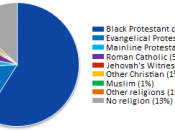Unit 5 Part 1 Test Essay
The literature of an era is always reflective of its times, and for the first few decades of the twentieth century, that fact was made obvious. With the world facing new challenges, writers searched for new creative outlets and techniques, and, for the first time, began to disregard the rules of writing that had once been dogma. Events such as war, financial depression, major social problems, and developments in both technology and psychology led to major literary advances such as Imagism, Modernism, stream-of-consciousness technique, and the Harlem Renaissance.
Before the "Great War" there was an overpowering sense of optimism amongst the American public. This optimistic view continued to possess the United States as young American men were sent to war beginning in 1915. Imagism, the poetic movement out of which Modernism rose, was alive during this period. Tired of the same old talk about feelings and poems that only a professional analysis could lead to the understanding of, Imagists felt that it was more effective to convey their messages by stating them simply and directly.
Archibald MacLeish captured the sentiment of the Imagist Movement in the eternal words from "Ars Poetica", "A poem should not mean, but be." And, as Ezra Pound stated quite decidedly in " A Few Don't by an Imagiste", "It is better to present one Image in a lifetime than to produce voluminous works."
As once naïve people were thrown into the realization of the harsh realities of war, however, they no longer trusted the ideals and morals that had lead to one of the bloodiest wars in recorded history. Some of the young men who had seen the horrors of war first hand became expatriates. They led loose lifestyles in a get-rich-fast era highlighted by risqué clothing, parties,


